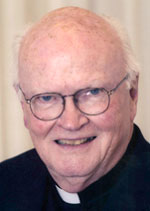There was a 36-hour meeting in Aspen, Colo., on June 24-25 that could be remembered as a launching pad for a new era of service in America.
Retired Gen. Stanley A. McChrystal, top commander of our troops in Afghanistan in 2009-2010, spoke a year ago at an Aspen Ideas Festival and called for large-scale civilian service to engage more Americans in serving community and country.
His idea was picked up by Walter Isaacson, president and CEO of the Aspen Institute, and the general was recruited to help organize the Aspen Institute’s Franklin Project, so-named by Isaacson, who wrote a famous biography of Benjamin Franklin and is well aware of Franklin’s commitment to voluntary civilian service.
The June invitation-only meeting at Aspen was billed as the 21st-Century National Service Summit. It attracted about 250 men and women who are knowledgeable and interested in releasing the hidden potential of service to revitalize America.
The “big idea” is to re-imagine civilian service as one side of a coin, with military service on the other side, and to create a system of service with 1 million people on each side of the service coin every year.
The civilian side would include the Peace Corps, AmeriCorps, Teach for America and some new entities such as a legal services corps sponsored by the American Bar Association, a financial service corps to assist the poor and special opportunities for returning military veterans who would reintegrate themselves into civilian life by a year of meaningful civilian service.
Under the aegis of the Franklin Project, a plan of action was presented at the summit and commitments were made by representatives of the higher education community, not-for-profit agencies, businesses and local governments to engage service members in meeting the unmet needs of the nation in areas such as conservation, cleaning up cities, repairing urban infrastructure and connecting the poor to better health care and improved education.
The hope is to introduce a “rite of passage” into American life that would provide a year-of-service bridge between high school and college or a similar bridge between college graduation and the pursuit of a career. This would be voluntary, not mandatory, and would involve some form of registration at age 18, a point at which all young Americans could pause to consider service as not something simply “nice” but “necessary.” The choice would be theirs.
There is plenty of evidence that service can be transformative in the life of the service provider and surely transformative for the place where the service was rendered. Many of today’s young Americans are adrift and purposeless at age 18; many American communities and institutions are in need of repair. National Service offers a solution to both problems.
Much remains to be done before this “big idea” will become a reality. Those who convened the Aspen Summit are hopeful that they will have sufficient private and public commitments to open the door to a new era of service to America in January 2014.
***
Father Byron, who participated in the Aspen Summit, is university professor of business and society at St. Joseph’s University, Philadelphia. Email: wbyron@sju.edu.
PREVIOUS: The surveillance state
NEXT: Helping to rebuild lives and communities for those fleeing despair




Share this story